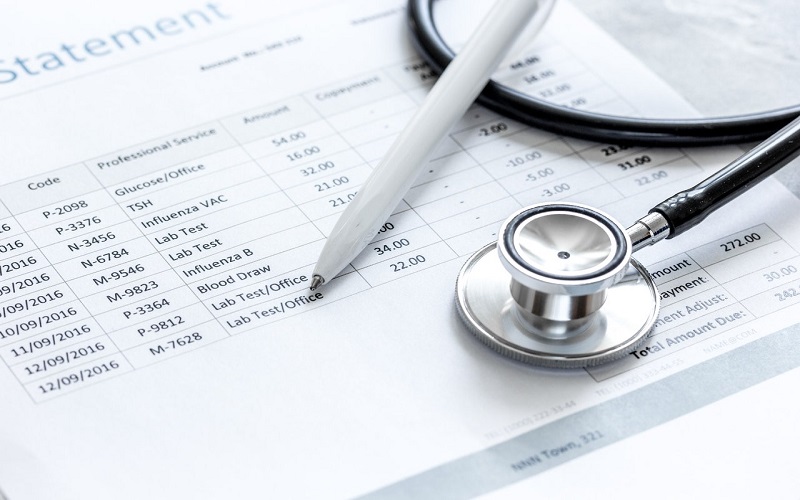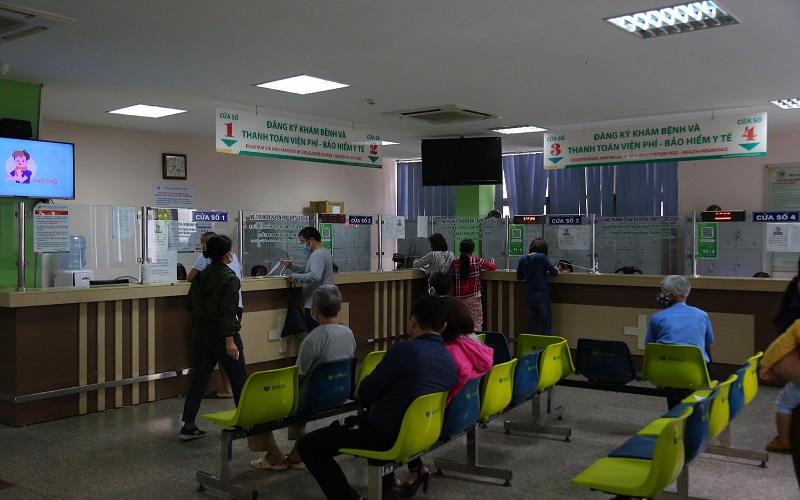Understanding the insurance payment process and its procedures will make reimbursement faster. Let’s explore the steps to claim health insurance today!
1 Insurance Claim Procedure/Guarantee of Payment
Case of Advance Payment, Subsequent Compensation
When the insured chooses to seek treatment at a legal medical facility that is not part of the insurance program’s guaranteed payment system, they will have to cover all expenses themselves and then submit the documents to the insurance provider for reimbursement of eligible expenses.
Compensation Timeframe
The insurance provider is responsible for making the insurance payment within a maximum of 15 days from receiving the claim request. Here are the specific timelines:
- Notification of receipt of documents within 3 days of the insurance provider receiving the complete set of documents from the insured.
- Notification for additional documents within 5 days from the date of receiving the initial set of documents.
- Notification of compensation within 10 days from the date of receiving the complete set of documents.
- Transfer of funds within 15 days from the date of receiving the complete set of documents.
- Return of documents in case of claim rejection within 60 days from the date of receiving the notification from the insurance authority.
- Upon receiving a complete set of documents, the insurance authority has 90 days to verify the claim.
- The insured has 30 days to provide additional documents from the date the insurance authority receives the initial set of documents.
 Insurance provider must reimburse within 15 days
Insurance provider must reimburse within 15 days
General Information about Insurance Payments
Any additional documents or medical information requested by the insurance authority to support the insurance payment will be provided free of charge. This will occur before any insurance payment is made.
In cases where medical documents/information are missing, the insured is responsible for providing the necessary paperwork to facilitate the swift resolution of insurance compensation.
The insurance payment will be made to the insured or the beneficiary as per the applicable laws and regulations.
Case of Guarantee (applicable for programs with guarantee services)
If the insured seeks treatment at a hospital or clinic within the insurance program’s guaranteed payment system, follow these steps:
- Present the insurance card provided by the insurance authority and personal identification documents such as ID card, passport, or birth certificate to the hospital or clinic.
- Review and sign the compensation request form provided by the medical facility after treatment, if required by the facility.
- After completing the above steps, pay any hospital expenses that are not covered or exceed the insurance liability.
2 Documents Required for Claiming Insurance Benefits
A complete set of documents for claiming insurance benefits includes:
- Insurance claim form
- Payment receipt
- Illustration/Schedule
- Advisor’s report
- Electronic claim request confirmation
- Personal identification documents
- Bank statement
- Other documents: Medical certificates, employment contract, etc.
 Prepare a comprehensive set of documents to claim insurance benefits.
Prepare a comprehensive set of documents to claim insurance benefits.
The required documents may vary depending on the specific situation:
Death
- Death certificate
- Medical records: Discharge papers/Treatment certificate, medical records, medical history/summary, surgery certificate, ultrasound results, X-ray results, etc.
- Accident records: Accident report, police conclusion about the accident
- Insurance contract
- Personal identification documents of the person claiming insurance benefits/beneficiary (ID card/citizen identification card/passport)
- Legal documents proving the right to receive insurance benefits (Power of Attorney, Guardianship Registration Extract, etc.)
Disability
- Medical records: Certificate from a competent medical authority about the disability status, medical history/summary, surgery certificate, X-ray films and results.
- Accident records (if due to an accident): Accident report, police conclusion about the accident
- Insurance contract
- Personal identification documents of the person claiming insurance benefits/beneficiary (ID card/citizen identification card/passport)
- Legal documents proving the right to receive insurance benefits (Power of Attorney, Guardianship Registration Extract, etc.)
 Provide additional documents as per specific cases
Provide additional documents as per specific cases
Surgery, Hospitalization
- Discharge papers
- Surgery certificate
- Detailed hospital expense report, receipt/invoice
- Medical history/summary
- X-ray films and results
- Personal identification documents of the person claiming insurance benefits/beneficiary (ID card/citizen identification card/passport)
- Legal documents proving the right to receive insurance benefits (Power of Attorney, Guardianship Registration Extract, etc.)
Critical Illness/Terminal Illness
- Medical records: Discharge papers/Treatment certificate, medical records, medical history/summary, surgery certificate, pathology results/cell tests, ultrasound results, X-ray results, etc.
- Accident records: Accident report, police conclusion about the accident
- Insurance contract
- Personal identification documents of the person claiming insurance benefits/beneficiary (ID card/citizen identification card/passport)
- Legal documents proving the right to receive insurance benefits (Power of Attorney, Guardianship Registration Extract, etc.)
3 Tips for Buying and Using Insurance
If you’re considering purchasing insurance, keep the following in mind:
- There are numerous insurance companies and packages available. Each insurance level corresponds to different compensation amounts. Consider the cost of insurance and the benefits it provides before choosing a plan that best suits your needs.
- Select a reputable insurance company. Nowadays, there are many fraudulent organizations pretending to be insurance providers for their gain. When purchasing insurance from a company, do your research and verify their legitimacy if possible.
- Adhere to the laws and regulations regarding insurance usage and take advantage of the benefits offered by the insurance company.
 Always opt for a reputable insurance company.
Always opt for a reputable insurance company.
The above information covers the essential procedures for health insurance reimbursement. Hopefully, this article provided valuable insights.
How to accurately check the information of Prudential insurance contracts? 5 Best ways for accurate information retrieval
How can you quickly and accurately look up information about Prudential insurance contracts? There are actually many ways to check your contract, such as using text message syntax, calling the hotline, going to the branch, or looking up online. Follow the detailed instructions from FPT Shop for more information.































